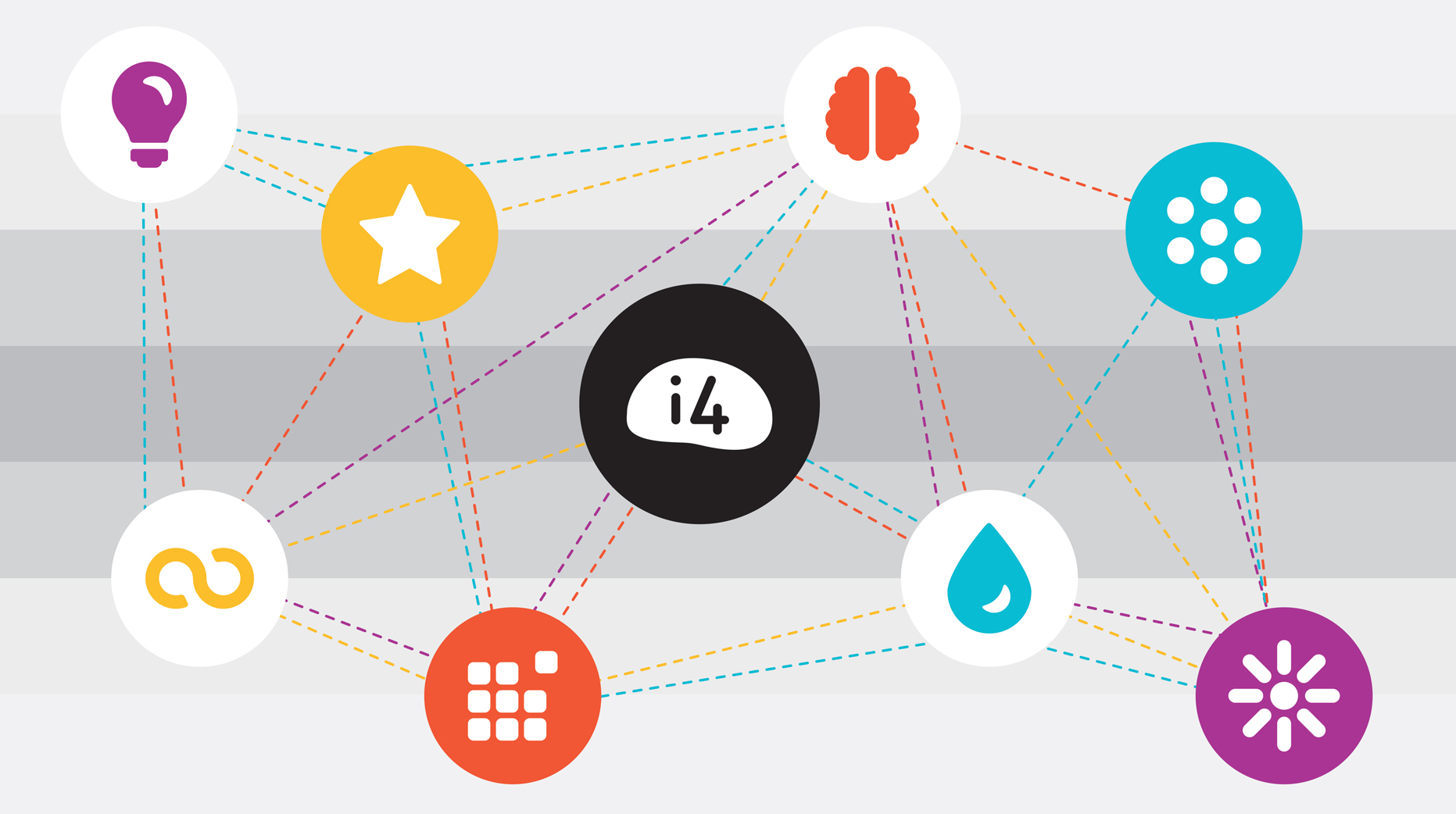Helping Leaders Overcome Biases That Block True Connections
A global economy requires strong collaborative skills from every effective leader. However, neuroscience has revealed that unconscious bias, now detectable using Magnetic Resonance Imaging (MRI), is a reality, and understanding how to manage it in leaders is fundamental.
Sitting down with a Canadian Senator to discuss leadership
While filming  , I had the pleasure of meeting the Honourable Kim Pate, who was appointed to the Senate of Canada in November of 2016. She has long advocated on behalf of women who were victimised and marginalised in the Canadian criminal justice system.
, I had the pleasure of meeting the Honourable Kim Pate, who was appointed to the Senate of Canada in November of 2016. She has long advocated on behalf of women who were victimised and marginalised in the Canadian criminal justice system.
Forcing change is not a good leadership technique. Instead, leaders need to develop qualities that provide mutual growth benefits to everyone involved, from the very top to the very bottom. Sharing and learning from each other is a strength, and everyone, no matter their role or what society may judge them for, can have a voice that others can learn from.
We can work together to address a myriad of issues, and I will learn from you, and you will learn from me.
Kim Pate
Unfortunately, bias naturally plays a role in our decisions and leadership-making skills. Unconscious bias has been found to be pervasive in our lives, even for people who should ‘know better.’ Even scientists are guilty of unconscious bias, and studies have found that female or minority scientists experience prejudice when it comes to funding and getting published (Kuehn, 2017).
What does unconscious bias really mean
for leaders?
When you walk into a room, you make impressions about the people, the surroundings, the smells, sounds, and everything in there almost instantly. These first impressions are often difficult for us to overcome. Maybe you were bullied by a redhead as a child, and you have an unconscious dislike for redheaded individuals. Our biases can be very personal, and they can be reasonable or totally off the
wall unreasonable.
To begin to fix the problem of unconscious bias, you first have to admit that there IS a problem. For many, they just wave it off and say they’ve always been this way, or it’s no big deal. But, if you are one of the people being marginalised, it is a big deal. It can affect your personal and professional life, and as humans, we should treat each other better than this.
Biases faced by women in leadership positions can be profound
The ‘good old boys’ club is still very much in effect today. Look at the leading bodies in many countries. According to the Center for American Women and Politics, the 115th Congress of the United States (2017-2019) is comprised of only 19.8% women. Canada fares somewhat better, with 88 women elected to serve in the 338-member Canadian House of Commons in 2015 (26% women). As of 2016, women represented 29% of members in the Australian House of Representatives.
While these numbers are slowly increasing, there is still a rather pitiful lack of representation for women. Women, after all, make up about half of the population on this planet, and expected ratios should reflect this. Breaking free of the old stereotypical roles has proven challenging for some women, especially in certain parts of the world. However, when we look at ‘leading’ countries like the USA, Canada, and Australia, we clearly see room for improvement.
Wait, is there really such a thing as
unconscious bias?
Looking at the data on women in positions of power, it’s clear that something is holding women back. Common excuses often blame family pressures or the lack of desire to lead. But, do these reasons really explain why there aren’t as many
female leaders?
Scientists such as Dr. Bernard J. Luskin have now validated unconscious bias, using techniques such as MRI, and they have found that this kind of bias is widespread and measurable. It affects the behaviour and decision-making abilities of leaders, but before we can solve this issue, people have to acknowledge it.
As Dr. Luskin explains in his blog, MRIs Reveal Unconscious Bias in the Brain, the amygdala is a cluster of neurons located in your temporal lobe, and it is known as the emotional center of your brain. It causes you to have the ‘fight or flight’ impulse in reaction to threats. You may unconsciously react to perceived risks, such as someone who reminds you of a bully from childhood. Your frontal cortex, which helps you form initial impressions, can also lead to unconscious bias, as you rapidly develop an impression about someone, often before you really have a chance to learn
about them.
Neuroscience has shown that this phenomenon is real, and the time to merely accept it as status quo is over. It is not acceptable for persons leading our political and business organisations to continue to show unconscious bias. Fortunately, we can learn to work together and learn from each other, giving great hope for the future.
Citation:
Kuehn, B. M. (2017). Rooting out bias. eLife, 6, e32014. http://doi.org/10.7554/eLife.32014
- i4 Neuroleader (353)
- Leadership & Culture (336)
- Brain Health & Wellbeing (206)
- Innovation (97)
- Performance (85)
- Our News (79)
- Collaboration (68)
- Agility (53)
- Practitioner Stories (44)
- In The Press (36)
- Make Me A Leader (33)
- Balance (31)
- Integration (30)
- Imagination (29)
- Awareness (23)
- Brain-Friendly Channel (22)
- Brain-Friendly Leadership (22)
- Communication (22)
- Curiosity (21)
- Inspiration (19)
- Intuition (19)
- Attitude (17)
- Courage (16)
- Adaptability (14)
- Case Studies (14)
- Drive (14)
- Generosity (13)
- Ethics (9)
- Mental Readiness (9)
- Influence (8)
- Retreat (8)
- Brain-Friendly Leadership (1)
- Oracle Cards (1)
- 1 November 2025 (2)
- 1 September 2025 (3)
- 1 August 2025 (5)
- 1 July 2025 (5)
- 1 June 2025 (2)
- 1 April 2025 (1)
- 1 March 2025 (8)
- 1 February 2025 (3)
- 1 September 2024 (4)
- 1 July 2024 (2)
- 1 June 2024 (6)
- 1 May 2024 (2)
- 1 April 2024 (3)
- 1 March 2024 (1)
- 1 November 2023 (1)
- 1 August 2023 (1)
- 1 July 2023 (2)
- 1 June 2023 (2)
- 1 May 2023 (4)
- 1 April 2023 (2)
- 1 March 2023 (7)
- 1 February 2023 (4)
- 1 January 2023 (1)
- 1 September 2022 (1)
- 1 May 2022 (3)
- 1 April 2022 (1)
- 1 March 2022 (5)
- 1 February 2022 (4)
- 1 January 2022 (4)
- 1 December 2021 (2)
- 1 November 2021 (4)
- 1 October 2021 (3)
- 1 September 2021 (6)
- 1 August 2021 (1)
- 1 April 2021 (1)
- 1 December 2020 (2)
- 1 November 2020 (1)
- 1 September 2020 (1)
- 1 August 2020 (1)
- 1 July 2020 (3)
- 1 June 2020 (4)
- 1 May 2020 (3)
- 1 April 2020 (4)
- 1 March 2020 (6)
- 1 February 2020 (4)
- 1 January 2020 (2)
- 1 December 2019 (3)
- 1 November 2019 (3)
- 1 October 2019 (5)
- 1 September 2019 (4)
- 1 August 2019 (4)
- 1 July 2019 (4)
- 1 June 2019 (5)
- 1 May 2019 (9)
- 1 April 2019 (9)
- 1 March 2019 (8)
- 1 February 2019 (7)
- 1 January 2019 (8)
- 1 December 2018 (5)
- 1 November 2018 (10)
- 1 October 2018 (16)
- 1 September 2018 (9)
- 1 August 2018 (10)
- 1 July 2018 (9)
- 1 June 2018 (8)
- 1 May 2018 (9)
- 1 April 2018 (9)
- 1 March 2018 (9)
- 1 February 2018 (8)
- 1 January 2018 (8)
- 1 December 2017 (6)
- 1 November 2017 (9)
- 1 October 2017 (9)
- 1 September 2017 (8)
- 1 August 2017 (10)
- 1 July 2017 (8)
- 1 June 2017 (8)
- 1 May 2017 (9)
- 1 April 2017 (8)
- 1 March 2017 (6)
- 1 January 2017 (3)
- 1 December 2016 (4)
- 1 November 2016 (5)
- 1 October 2016 (4)
- 1 September 2016 (2)
- 1 August 2016 (4)
- 1 July 2016 (4)
- 1 June 2016 (2)
- 1 May 2016 (3)
- 1 April 2016 (3)
- 1 March 2016 (7)
- 1 February 2016 (2)
- 1 January 2016 (5)
- 1 December 2015 (2)
- 1 November 2015 (2)
- 1 October 2015 (4)
- 1 September 2015 (2)
- 1 August 2015 (2)
- 1 July 2015 (1)
- 1 June 2015 (3)
- 1 May 2015 (4)
- 1 April 2015 (5)
- 1 March 2015 (3)
- 1 February 2015 (3)
- 1 January 2015 (3)
- 1 December 2014 (3)
- 1 November 2014 (3)
- 1 October 2014 (3)
- 1 September 2014 (5)
- 1 August 2014 (4)
- 1 July 2014 (5)
- 1 June 2014 (3)
- 1 May 2014 (1)
- 1 March 2014 (1)
- 1 December 2013 (2)
- 1 November 2013 (1)
- 1 July 2013 (1)
- 1 June 2013 (1)
- 1 May 2013 (3)
- 1 April 2013 (1)
- 1 March 2013 (2)
- 1 February 2013 (1)
- 1 January 2013 (2)
- 1 November 2012 (1)
- 1 October 2012 (1)
- 1 September 2012 (1)
- 1 August 2012 (2)
- 1 July 2012 (1)
- 1 June 2012 (1)
- 1 May 2012 (2)
- 1 April 2012 (1)
- 1 February 2012 (1)
- 1 January 2012 (1)
- 1 November 2011 (1)
- 1 October 2011 (3)
- 1 September 2011 (2)
- 1 July 2011 (1)
- 1 June 2011 (1)
- 1 May 2011 (1)
- 1 April 2011 (1)
- 1 March 2011 (1)
- 1 February 2011 (2)
- 1 January 2011 (4)
- 1 December 2010 (4)
- 1 November 2010 (3)
- 1 October 2010 (5)
- 1 September 2010 (4)
- 1 August 2010 (4)
- 1 July 2010 (3)
- 1 June 2010 (4)
- 1 May 2010 (7)
- 1 April 2010 (5)
Subscribe by email
You May Also Like
These Related Stories

The Take

Feeling Creative?



No Comments Yet
Let us know what you think